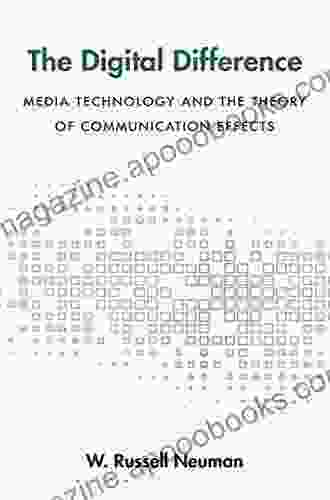How the Great Composer Became an Icon in the People's Republic: The Story of Mao Zedong and Beethoven

by Jonathan Spence
In the annals of history, there are few relationships as unlikely as that between Mao Zedong, the founder of the People's Republic of China, and Ludwig van Beethoven, the German composer. Mao, a ruthless revolutionary, was known for his austere lifestyle and his disdain for Western culture. Beethoven, on the other hand, was a passionate romantic who believed in the power of music to change the world.
Despite their vast differences, Mao and Beethoven shared a common bond: a love of music. Mao was a talented musician himself, and he often played the piano in his spare time. He was particularly fond of Beethoven's music, which he found to be both inspiring and uplifting.
4.3 out of 5
| Language | : | English |
| File size | : | 6326 KB |
| Text-to-Speech | : | Enabled |
| Screen Reader | : | Supported |
| Enhanced typesetting | : | Enabled |
| Print length | : | 100 pages |
Mao's love of Beethoven's music had a profound impact on his political ideology. Beethoven's music, with its themes of struggle, triumph, and hope, resonated with Mao's own revolutionary spirit. Mao believed that Beethoven's music could inspire the Chinese people to overthrow their oppressors and build a new, more just society.
Mao's admiration for Beethoven was not just limited to his music. He also admired Beethoven's personal qualities, such as his courage, determination, and resilience. Mao saw Beethoven as a model for all revolutionaries, and he often quoted Beethoven's words in his own speeches.
Mao's love of Beethoven's music was not shared by all of his comrades. Some of the more conservative members of the Chinese Communist Party viewed Beethoven's music as being too bourgeois and decadent. They argued that Mao should focus on promoting Chinese folk music instead.
Mao, however, refused to listen to their criticisms. He believed that Beethoven's music had a universal appeal that could transcend cultural and political boundaries. He also believed that Beethoven's music could help to promote unity and cooperation among the Chinese people.
Mao's love of Beethoven's music reached its peak during the Cultural Revolution, a period of political turmoil that lasted from 1966 to 1976. During the Cultural Revolution, Mao's personality cult reached its height, and his image was everywhere. Beethoven's music was also ubiquitous during this time, and it was often used to accompany propaganda films and speeches.
For many Chinese people, Beethoven's music became a symbol of resistance and hope during the Cultural Revolution. Beethoven's music was a reminder that even in the darkest of times, there is always hope for a better future.
Mao Zedong died in 1976, but his love of Beethoven's music continues to live on. Beethoven's music is still popular in China today, and it is often performed at official state functions.
The story of Mao Zedong and Beethoven is a fascinating and insightful account of the unlikely relationship between two towering figures of the 20th century. It is a story that reveals the power of music to inspire, to unite, and to give hope.
Bibliography
- Spence, Jonathan. Mao Zedong and Beethoven: The Story of an Unlikely Friendship. New York: Viking, 2009.
- Wang, Xiaofei. The Cultural Revolution and the Chinese Musical Tradition. Hong Kong: Chinese University Press, 2004.
4.3 out of 5
| Language | : | English |
| File size | : | 6326 KB |
| Text-to-Speech | : | Enabled |
| Screen Reader | : | Supported |
| Enhanced typesetting | : | Enabled |
| Print length | : | 100 pages |
Do you want to contribute by writing guest posts on this blog?
Please contact us and send us a resume of previous articles that you have written.
 Book
Book Novel
Novel Page
Page Chapter
Chapter Text
Text Story
Story Genre
Genre Reader
Reader Library
Library Paperback
Paperback E-book
E-book Magazine
Magazine Newspaper
Newspaper Paragraph
Paragraph Sentence
Sentence Bookmark
Bookmark Shelf
Shelf Glossary
Glossary Bibliography
Bibliography Foreword
Foreword Preface
Preface Synopsis
Synopsis Annotation
Annotation Footnote
Footnote Manuscript
Manuscript Scroll
Scroll Codex
Codex Tome
Tome Bestseller
Bestseller Classics
Classics Library card
Library card Narrative
Narrative Biography
Biography Autobiography
Autobiography Memoir
Memoir Reference
Reference Encyclopedia
Encyclopedia Kaitlin Solimine
Kaitlin Solimine Helena Denisoff
Helena Denisoff Hannah Parkes
Hannah Parkes Hassan Rasheed
Hassan Rasheed Janae C Stubbs
Janae C Stubbs John Koethe
John Koethe Sonja Dewing
Sonja Dewing Scot Taber
Scot Taber Ken Lawrence
Ken Lawrence Heinrich Gerlach
Heinrich Gerlach Matt Copeland
Matt Copeland Reg Crowshoe
Reg Crowshoe Ian Stables
Ian Stables Isabel Hardman
Isabel Hardman Hannah Holman
Hannah Holman Haley Pierson Cox
Haley Pierson Cox Honor Raconteur
Honor Raconteur Tomas Veres
Tomas Veres Peter Tonkin
Peter Tonkin Heide Goody
Heide Goody
Light bulbAdvertise smarter! Our strategic ad space ensures maximum exposure. Reserve your spot today!

 Reginald CoxHowExpert Guide To Penguins: Embark on an Enchanting Journey into the Penguin...
Reginald CoxHowExpert Guide To Penguins: Embark on an Enchanting Journey into the Penguin...
 Dustin RichardsonUnveiling 100 Spectacular Quilt Blocks: A Journey of Creative Inspiration
Dustin RichardsonUnveiling 100 Spectacular Quilt Blocks: A Journey of Creative Inspiration
 Russell MitchellUnveiling the Sacred Duties of Parents: A Comprehensive Guide to Nurturing...
Russell MitchellUnveiling the Sacred Duties of Parents: A Comprehensive Guide to Nurturing... Steven HayesFollow ·8.4k
Steven HayesFollow ·8.4k Jerry HayesFollow ·2.7k
Jerry HayesFollow ·2.7k Cason CoxFollow ·13.4k
Cason CoxFollow ·13.4k Alfred RossFollow ·19k
Alfred RossFollow ·19k Max TurnerFollow ·16.9k
Max TurnerFollow ·16.9k Julio CortázarFollow ·19.9k
Julio CortázarFollow ·19.9k Beau CarterFollow ·12.4k
Beau CarterFollow ·12.4k Travis FosterFollow ·13.4k
Travis FosterFollow ·13.4k

 Stanley Bell
Stanley BellUnlock the Secrets of Powerball Success: Master the...
Prepare to shatter the odds and transform...

 Ernest J. Gaines
Ernest J. GainesPatti Smith Horses 33 55: A Photographic Journey into a...
Journey into the raw and...

 Isaiah Price
Isaiah PriceMoyamoya Disease Diagnosis And Treatment: A Comprehensive...
Moyamoya Disease...

 Joseph Foster
Joseph FosterRecent Advances in Ophthalmology, Volume 14
Editor: [Editor's...
4.3 out of 5
| Language | : | English |
| File size | : | 6326 KB |
| Text-to-Speech | : | Enabled |
| Screen Reader | : | Supported |
| Enhanced typesetting | : | Enabled |
| Print length | : | 100 pages |









